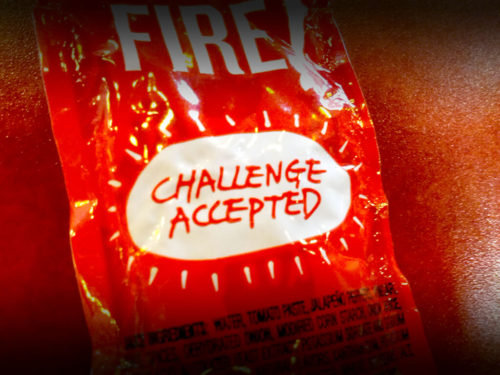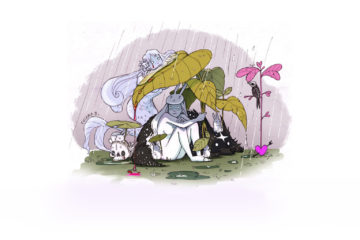![By Jspeed1310 (Own work) [Public domain], via Wikimedia Commons](http://www.teddideppner.com/wp-content/uploads/2016/12/emoji-smiles_angry_face.png) This fall and winter I’ve heard more friends talk about social media pain than ever before. Unfriending over politics isn’t new. Long before friendships went online, there was a long-standing social rule (in some circles) about not talking politics or religion. At least not at social gatherings that were intended to remain pleasant.
This fall and winter I’ve heard more friends talk about social media pain than ever before. Unfriending over politics isn’t new. Long before friendships went online, there was a long-standing social rule (in some circles) about not talking politics or religion. At least not at social gatherings that were intended to remain pleasant.
But online communication creates an environment in which some people feel that they are free to be rude, nasty or insensitive without the usual consequences they would experience if they’d behaved that way face to face. Even people who are normally polite are lulled into expressing raw emotions without concern for the feelings of the person receiving their words.
I’m no expert, but I’ve collected a few strategies that have helped me keep my sanity (and some friendships) in the midst of this bizarre social landscape we live in today.
1. Let them vent
If someone is ranting about something they saw online, something that happened to them, or a pet peeve, that is not the time to offer a friendly, contrasting viewpoint. It may look like a great chance to debate a topic or have a lively discussion, but if you are seeking a real “meeting of the minds”, then save your arguments for another time.
People who are venting want to vent. Give them a sympathetic nod, an understanding pat on the back, or just hold your tongue. If you really want to discuss the topic in a rational way, then wait a while (at least a few days or a week) and introduce the topic on your own account and invite them to join the conversation.
Beware: Sometimes emotional venting is hidden in the trappings of intellectual discussion.
2. Know your own bias
Everybody has a history. Each person’s education, personal experience, and passion fuels his or her position on any number of hot social topics. It is possible that if you walked in their shoes for their lifetime, your own conclusions would be similar. Embrace the reality that your own biases color your view of the world and no doubt blind you in some areas, and speak from that understanding. Even the things you are convinced to your bones are absolutely true may be significantly influenced by your personal filters.
Hold your conclusions loosely, especially on topics that have a history of controversy and contradictory conclusions based on the same body of evidence. If scientists, investigators or philosophers haven’t resolved the debate in decades (or centuries), what makes you so special? The mind that is not willing to give a nod to a different interpretation of the evidence is a small one.
3. Humility over hubris
I’ll say this one again: Many hot topics have been controversial for decades or even centuries. Do you really think that you are the pinnacle of human intelligence and have somehow gathered all the answers? Oh, I see. You have a degree in this subject or you’ve been studying it for years. Or at least, you have a quote from an expert that sums up the whole debate in 25 words or less. Surely then, you know it all.
Yes, that was sarcasm. Yes, sarcasm is a bad idea when seeking rational discussion online. But since I’m not talking about you personally (you’re too smart to fall into that trap, after all), I hope you weren’t offended.
If there’s anything I’ve observed in my time on this earth, it is that the body of human knowledge is ever-increasing, ever-changing and highly subjective. Even “science” is incredibly limited in its scope, as any true scientist should be willing to admit. Constantly, new things are being discovered, long-held conclusions are being challenged, and hypotheses that have become traditionally held as fact are being debunked.
Be open to the idea that “the other guy” could be right, no matter how certain you may feel that he is not.
4. Do not assume idiocy, evil or incompetence
A common pitfall in social interactions involving any form of debate is the vilification of your opponent. Not just as a form of attack to dismantle their argument or credibility during the debate, but as a basic assertion in your own mind. This is a terrible trap. The disrespect of others closes your mind and heart to hearing anything of value that they might offer.
For those of us truly interested in understanding the others with whom we share the earth, it’s important to exercise a level of tolerance beyond the average. Look for points of agreement, wherever possible. We each may feel that our way is the best and highest way, but viewing others as “less than” ourselves is always a step in the wrong direction.
5. Remember who they are IRL
With the advent of social media, many of us have been surprised by the politics we discovered under the surface of our co-workers, relatives, friends from college and high school, fellow church-goers, or celebrities. Have you found yourself uncomfortable with the social posts of people you know in real life? It’s time think back to the times you’ve enjoyed their company. Meals shared, activities attended together, friendship and support exchanged.
If those interactions carry the weight of authentic friendship, if you know when you look in their eyes that they care about you, yet the news stories and vitriolic memes they share disturb you, I encourage you to take action. Either forgive them their poor choice of memes or challenge them on it in a face-to-face conversation. Explore the friendship and determine whether it is real or not, whether it is something you value and want to keep — or not.
6. When necessary, remove yourself
What level of tolerance do you actually want to practice? “Tolerance” sounds like a worthy thing, and in theory it seems like it would result in peace. At the same time, tolerating (continually putting yourself around) a dramatically different viewpoint can be stressful and trigger your body’s fight or flight responses. This is not a healthy way to live, day to day. There are times when it is wise to remove yourself from this sort of stress — by removing those viewpoints from your social media feeds. Unfollowing or unfriending is a legit way to preserve your own health, when done without malice for the purpose of remaining at peace.
This post is bursting with bias
See the biases in my post?
I value diversity in friendship: I tend to want to keep friends around, even when we disagree on some things.
I value perspective: Emotions don’t hold as much weight for me as the long view of history and of my life’s legacy.
I value peace: Even though I like having friends who think differently and I want to be open to a variety of perspectives, I’d rather walk away than keep strife in my life.
What do you value? How do you stay sane in the midst of social media insanity? Share in the comments.





0 Comments